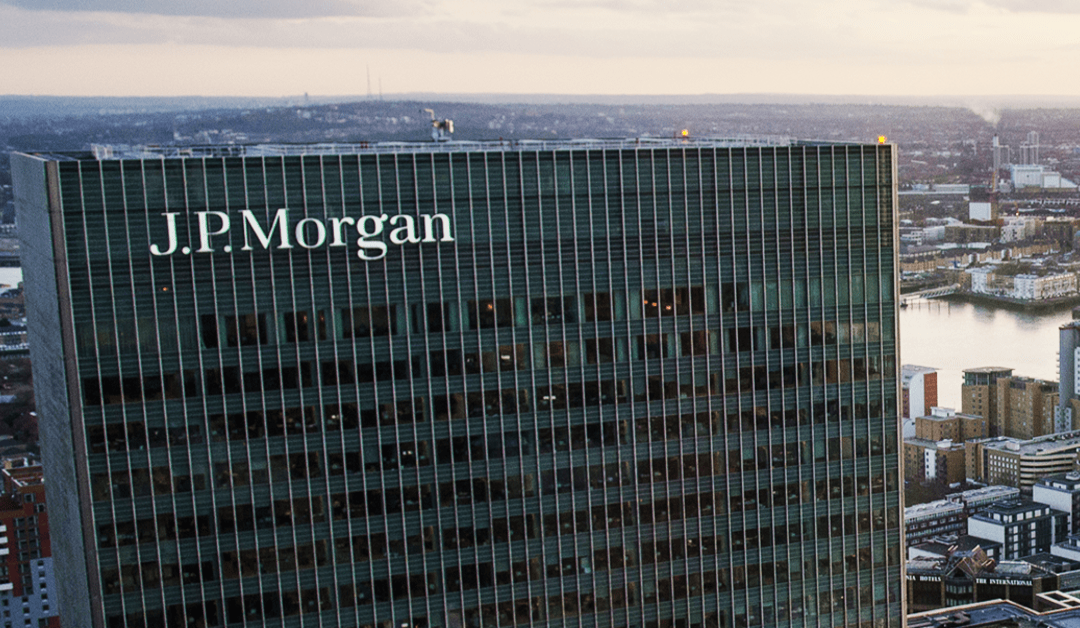
by Samuel Mbaki | Mar 24, 2023 | Banking, Finance
Deutsche Bank shares have retreated for a third day, losing over a fifth of their value in a month. The share prices fell by over 9% in early trade markets on March 24, 2023.
Germany’s Deutsche Bank in trouble?-Shares plummets by 9%
Germany’s Deutsche Bank seems to be the latest bank engulfed by the ongoing banking meltdown as its shares are receding heavily. The bank’s shares fell by over 9% on Friday following concerns regarding its stability.
Its shares have fallen consistently over the past three days, shedding over a fifth of their value. The reason behind the investors’ cash out of their shares is the bank’s Credit default swaps (insurance for the company’s bondholders against its default) which leaped to 173 basis points on March 23, 2023 night from 142 basis points noted in the previous day.
Such a big step to the negative side must have spurred the bank’s investors, who are already nervous following the meltdown of major banks like Silvergate, Silicon Valley Bank, and Credit Suisse. As such, investors dumped the bank’s shares and its AT1 bonds.
Banks continue seeing massive stock declines
The current global financial crisis has been aggressively exposing weak links in the sector. It was first noted in the sell-off of unregulated assets like crypto but has shown that it’s even prone in the regulated pillars of the economy, banks.
It started with the collapse of the Silicon Valley Bank in Mid-March 2023. The FDIC took control of the bank and bailed customers out. The fall of this US regional bank shook the crypto and stock markets heavily, causing the de-pegging of Circle’s USDC, which was confirmed to have its reserves in the bank.
As a reflex action, Banks’ investors globally started looking into the management of their investments only to notice that many others were having the same balance sheet issues as SVB. Since then, banks have been seeing massive sell-offs, and there doesn’t seem to be an end. Keep watching Fintech Express for updates on the story.

by Fintech Express | Mar 22, 2023 | Banking, Technology
Video game retailer GameStop has released a positive Q4 financial report, shocking many short-sellers as its shares skyrocketed. The company’s stocks had been on almost a free fall over the past few months, but the trend seems to be reversing now.
GME shorters in for a rude shock
GameStop managed to stay afloat and turn a profit $48.2 M in Q4 2022 after successively making losses in all quarters since 2021. The report set the market ablaze, with GME stocks rising by almost 50% at one point. As the euphoria behind the company’s stock continues growing, more shorters are at risk of being squeezed out of the markets.
In the financial report announcement, the company said that its hardware and accessories category had a net profit of $1.24B, a 4.6% rise, while its software sales fell 15% to 670.4M. It also stated that its collectibles category slingshot by 12% to 313.2M. The company reported 16 cents per share, a huge difference from the reported 49 cents per share loss a year earlier
Global Markets continue receding
The ongoing financial crisis is becoming a worrying issue lately, with banks collapsing globally and inflation spiking. Recently, major banks like SVB, Credit Suisse, Silvergate, and Signature banks were forced to close down due to bank runs and non-compliance with banking regulations.
Ironically, investigators and auditors have discovered over 200 more banks may have the same loopholes in their balance sheets as the Silicon Valley Bank. These developments have sparked debates on Socials, with people exchanging views on who is to blame for what’s happening.
President Joe Biden has come out to say that Venture Capitalists and Bank investors are to blame for the mismanagement that is going on. Therefore, they will not be bailed out if case banks do not perform according to their plans
He has also ‘assured’ US Citizens that the banking system is strong and safe, a comment that not so many people agree with. Some Twitter users criticized the FDIC and current efforts to ‘save’ the banking system.
Keep watching Fintech Express for banking and other Fintech-related news.

by Betty W. Charles | Feb 16, 2023 | Banking, Finance
All economies worldwide, including the wealthiest ones like the U.K., US, Germany, Australia, and Spain, are being afflicted by a spiking level of inflation. For instance, the US suffered the highest increase of 9.1 percent in consumer prices in 2022. Germany suffered an annual inflation increase of 7.5 percent, while the U.K. suffered an increase of 8.2 percent in the same year.
Why is inflation spiking?
Covid-19 is among the global issues tied to the surge in inflation. Since 2020, the supply chain systems have experienced disruptions across transportation by ships, flights, trains, and trucks, resulting in a strain on the supply chain. Consequently, the cost of shipping goods has risen sharply. Since many manufacturers rely on a just-in-time mode of production, they have not been able to overcome the shortcomings of the transportation snafus. Thus, shortages occur, and consequential surge in prices.
The pandemic also left lasting effects on the labour markets when many businesses had to close or fire many employees. Even after the restrictions were relaxed, these businesses could not hire their employees back. This led to labour shortages that needed higher capital to acquire and maintain.
As though the pandemic was not enough, the issue of inflation was compounded by Russia’s war on Ukraine. The war began in February 24 and interfered with the supply of grains and fuel globally. Some countries fought against Russian imports because of their involvement in the war, and in retaliation, Russia decided to halt its oil shipment.
This has resulted in the disruption of the market globally. The conflict between the two countries has increased uin food prices. Ukraine is among the largest food exporters due to its possession of fertile soils. However, Russia destroyed Ukrainian crops and undermined the country’s ability to export foodstuffs. This has led to a worldwide increase of agricultural commodities prices.
Top tips for surviving when inflation spikes
The spiking of inflation can cause strains on finances among many people, and there is a need to adopt strategies that will help to align with the prices. Here are some of the strategies to adopt:
1. Avoid taking debts
Although banks decided to maintain low-interest rates during the pandemic, new debts became a liability that needed to be serviced monthly. It reduces people’s financial flexibility because it adds extra to the budget. If taking loans is investable, at least consider shopping around for low-rate or zero percent balance-transfer cards. This will reduce the burden of the repayment and the extra interest rate.
2. Start paying more attention to sales
Inflation time is the time to become a bargain hunter. Paying more attention to sales will guide you where to whop what and when. Some people have resorted in taking advantage of price-matching policies by shopping essentials in bulk and enjoying the discounts that come with it. Others have switched to cheaper brands, which has helped them save a few coins that help them hedge against inflation.
3. Stay within a budget
Inflation makes it difficult for people to stay within a budget because the prices of commodities have gone high and the income is not increasing. It is important to reassess your spending habits and adopt more conservative ones.
This is the time to forego family vacations, changing the car out of luxury, gym subscription, dining out, and other things that can be put on hold. It is the time to check the things that you can temporarily do without to ensure that essentials such as housing, food, transportation and utilities are covered.
4. Save strategically
Some saving strategies such as high-interest savings account (HISA) are subject to earning less interest during inflation because of their variable rates. A smart way of saving during such a time is using methods with a constant rate of earned interests such as the Guaranteed Investment Certificate to ensure that even when the inflation is high, your savings are accruing interest at a constant rate.
5. Hunt for remote part-time positions
During inflation, as many companies are firing their employees, remote positions are their alternative labour markets as they are devoid of the costs that come with running a typical office.
A remote position will also be a smart way to reduce transport costs as one will work from home. It is also a way of earning extra income while still formerly employed to help curb the margin created by the hiked prices of commodities.

by Fintech Express | Feb 10, 2023 | Banking, Cryptocurrencies
JP Morgan, one of the largest investment banks in the world, has lately made a vaticination about the future of finance in the DeFi( Decentralized finance) space. According to the bank, deposit tokens could soon trade on DeFi platforms in an analogous manner to stablecoins.
JP Morgan thinks tokenized deposit tokens could rival stablecoins
Stablecoins are digital assets pegged to the value of an existing currency or have become decreasingly popular in the DeFi and crypto space to give stability to the frequently unpredictable cryptocurrency request. Deposit tokens, on the other hand, are assets that represent a claim on a bank deposit.
JP Morgan and consulting firm Oliver Wyman have released a report on how DeFi could be a green field for traditional banking, particularly deposit tokens. The two believe that deposit tokens could be tokenized to operate on different blockchains, with the issuer responsible for creating a DeFi-like infrastructure.
JPMorgan believes that deposit tokens could offer a new way for investors to pierce the DeFi space, as they would give a position of security and stability analogous to traditional bank deposits. The bank also believes that deposit tokens could give way for institutional investors to gain ground in the DeFi space, as they offer a familiar and regulated investment option.
Blockchain technology to continue reshaping the finance world?
This vaticination from JPMorgan is significant as it shows the growing significance of DeFi in finance and highlights the eventuality for traditional fiscal institutions to get involved in this arising request.
It’s one of the starts of a long path where banks will adopt crypto and blockchain technology. It also shows a growing interest in the crypto space by banks and other stakeholders of the traditional finance sector.
It remains to be seen how deposit tokens will be welcomed by the DeFi community and how they will fit into the overall ecosystem; additionally, JP Morgan’s vaticination is one to watch as the DeFi space continues to evolve and develop.

by Fintech Express | Jan 31, 2023 | Banking, Cryptocurrencies, Regulation
FTX meltdown has been monumental. Now, a series of events haunt Bankman-Fried and keep him away from what was once his crypto estate.
FTX keeps haunting Bankman-Fried
Things are getting hard for Sam Bankman-Fried as regulators prepare for the October trials, and FTX is getting liquidated. He is under house arrest after being granted a $250M bail.
Since his release, Bankman-Fried has been trying to access FTX and Alameda Funds and ‘prove’ his innocence to no avail. All that seems to be working against him. Yesterday, a series of events happened. Here is a breakdown of what transpired.
Judge rules that SBF’s $250M guarantors be made public
In a Jan 30 ruling, two sureties of the $250M bail granted to Bankman-Fried were asked to be revealed. The New York judge ruled that the two unnamed individuals who have been hidden since the bail terms were made and signed can now be exposed.
This news shocked Bankman-Fried’s legal counsel, who had highly contested that the individuals’ identities remain hidden, citing security reasons. The Judge has given them until Feb 8 to contest the ruling.
Alameda Research sues bankrupt Voyager Digital for $446M
FTX’s sister company, Alameda Research, is suing bankrupt crypto lender Voyager Digital for $446M. The ill-fated company is seeking to claw back loan repayments that FTX had made to the crypto lender before filing for bankruptcy in November.
The lawyers managing FTX and Alameda filed the motion against Voyager in a Delaware court on Jan 30. The development twist is that both companies filed for bankruptcy in 2022, but voyagers came four months earlier. Following its bankruptcy filing, it demanded that FTX and Alameda repay all loans.
According to FTX lawyers, these loans need to be clawed back as they were made near November when the exchange filed for bankruptcy. FTX claims to have paid $248.8M in September and another 4193.9M in October. It also made a $3.2M repayment of the loan’s interest in August.
The lawyers claim that the exchange used customer deposits to make the payments, meaning the process was irregular. Voyager ought to refund it so the exchange’s users can be repaid.
Justice Dept wants SBF not to access FTX and Alameda assets
The US Department of Justice is siding with a filing that seeks to bar Bankman-Fried from accessing FTX and Alameda Assets. Prosecutors are not happy that Bankman-Fried tried to contact both FTX bankruptcy CEO John Ray and FTX US general counsel Ryne Miller. The prosecutors have even produced the text and email messages between Bankman-Fried and John Ray.
In Jan 30 filings, the Department of Justice responds to a recent move by Bankman-Fried’s lawyers to amend his bail conditions, including not contacting former or current FTX employees. Bankman allegedly wanted to meet John Ray in New York to explain how Ray could access the funds.
On Jan 12, Bankman-Fried had also claimed that law firm Sullivan & Crowell had pressured him into naming Ray as his successor. In response, Ray claimed that after filing for bankruptcy, Sam Bankman-Fried was no longer the FTX CEO, and he has no role in the company, therefore, no authority to talk on the company’s behalf.

by Fintech Express | Jan 28, 2023 | Banking, Cryptocurrencies
Silvergate has suspended its dividends due to financial constraints. It claims it is taking that step to preserve a highly liquid balance sheet following a significant loss in Q4 2022.
$1B loss drives Silvergate to desperate measures
It has been a hard time for SIlvergate as it struggles to stay afloat following a $1B loss in Q4 2022. It won’t pay its investors dividends in 2023 as the economic conditions worsen.
This is not the first harsh measure the bank has taken; lately, it even laid off 200 employees to cut its expenses. The California-based bank announced on Friday that it was halting its dividends pegged at 5.375% Fixed Rate Non-Cummulative Perpetual Stock, Series A, to preserve capital.
It outlined that the decision comes amid the continuation of a strong crypto winter but did express that investors shouldn’t be worried about the reserves. It said it has at least a 1:1 match of reserves and customer deposits.
“This decision reflects the Company’s focus on maintaining a highly liquid balance sheet with a strong capital position as it navigates recent volatility in the digital asset industry.”
The firm added that its Board of Directors would re-evaluate the payment of quarterly dividends as the market conditions evolve. This news had a harsh effect on the company’s stock prices, with SI-PA dropping by 22.71% to $8.85 and the common SI stock price plummeting by 3.765 to $13.58.
Zooming out, the two stocks have been declining in value over the past 12 months, with SI-PA dropping by 60% and SI stocks by 87.46%.
A looming economic collapse?
Silvergate isn’t the only company affected by the ongoing financial crisis. Post COVID-19 economy was expected to be harsh and weigh down on the average investors and people. Things have worsened, with multiple companies having massive layoffs, filing for bankruptcy, and others going into debt.
Countries are also battling record-high inflation rates and recession threats. Earlier in the week, the US hit its debt ceiling and still has an inflation rate of 6.5%. Although it has managed to battle it from 10%+, the hitting of the debt ceiling means a hard time ahead for the citizens. On the other hand, the UK is expected to undergo a ‘soft recession’ in 2023.
The financial decline is cutting across the globe, with China being in a better position as it only has a 1% inflation to battle with. Citizens from other countries should brace for more challenging economic times as the markets may shrink.





